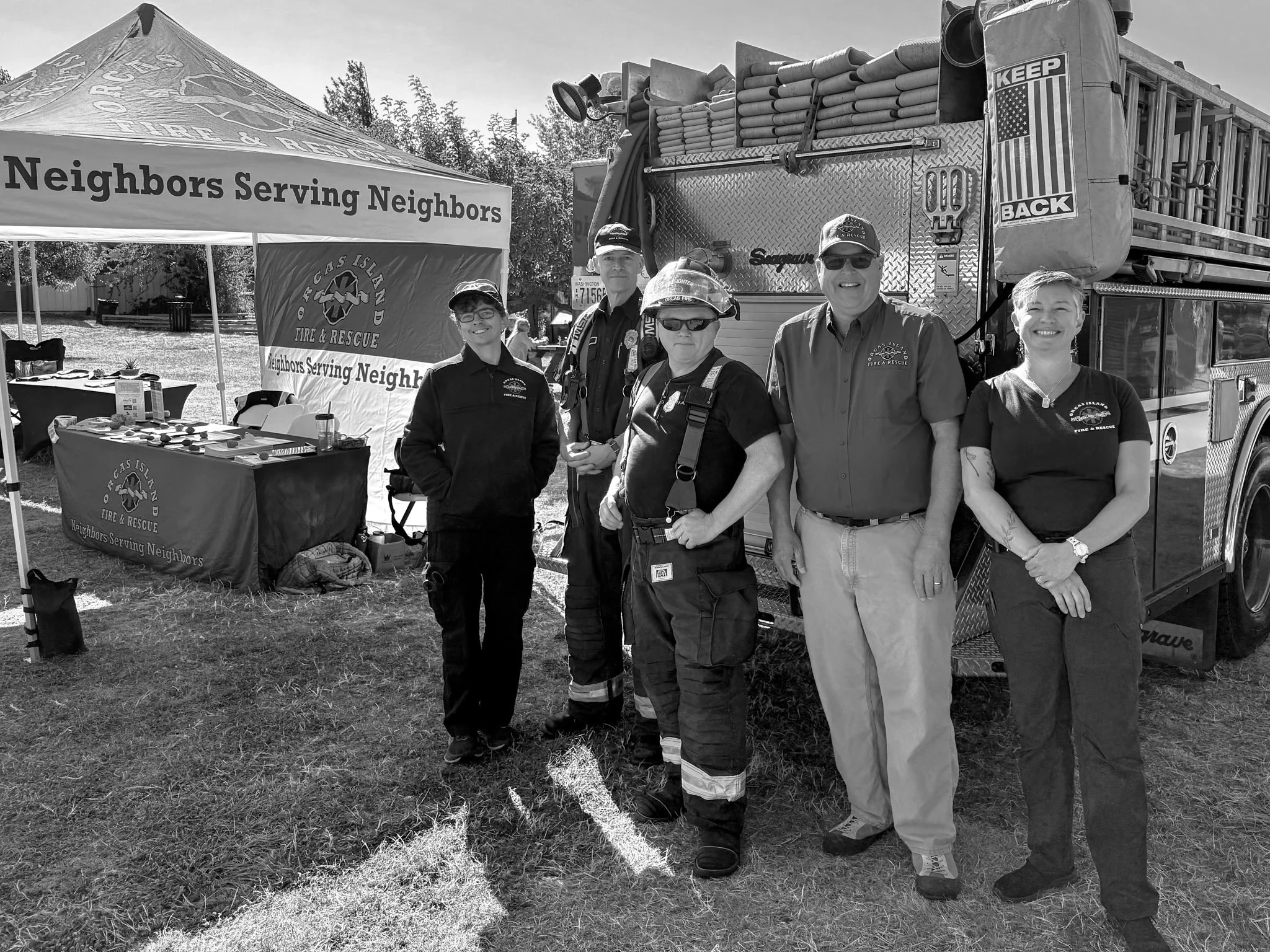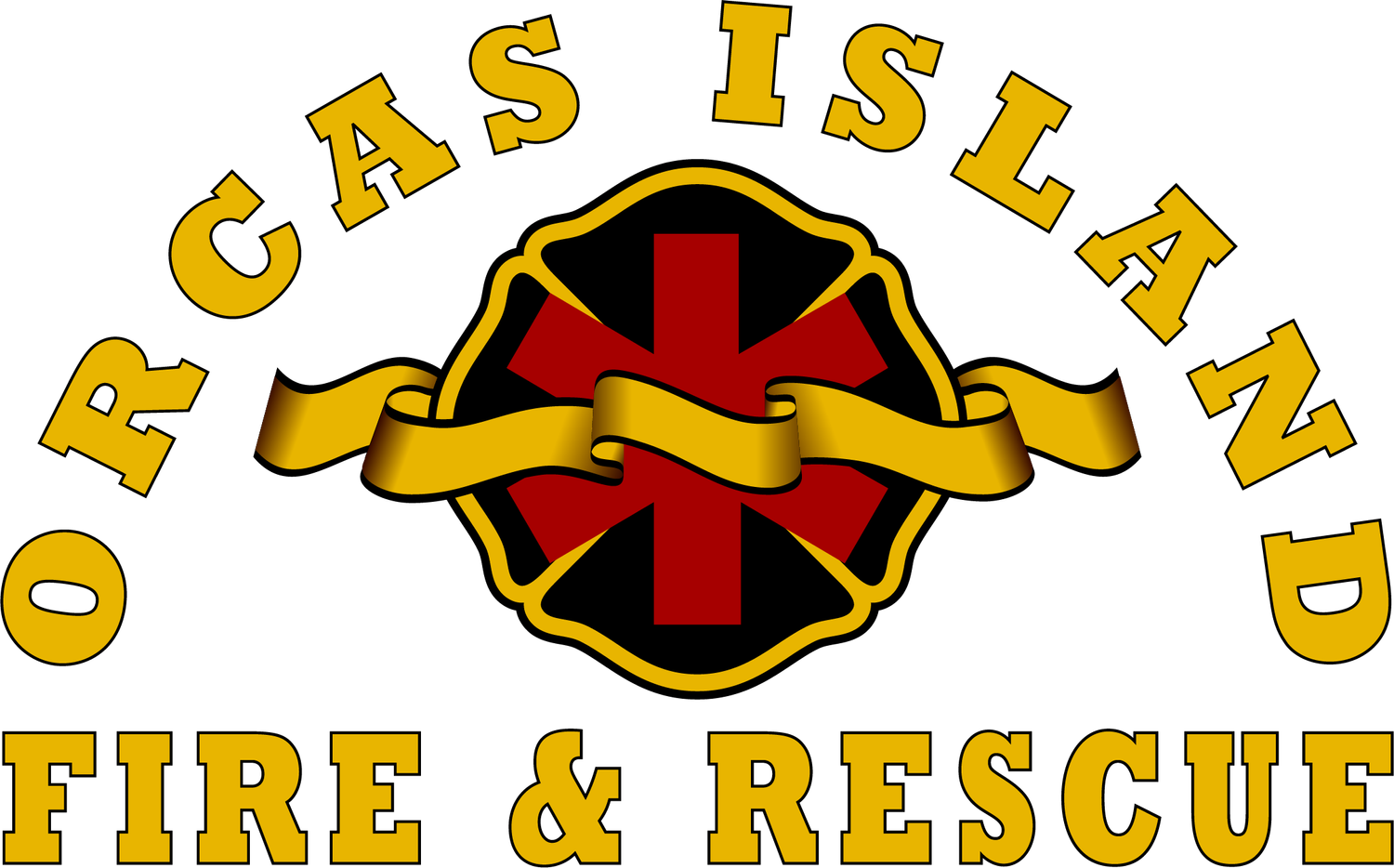
Non-Emergency Support Division
The Backbone of Emergency Response
Behind every successful emergency operation are the people who make it possible. Our non-emergency support teams provide the foundation that keeps responders fed, trained, and ready to serve. They don't fight fires or respond to medical calls - they make everything else work.
The Auxiliary: Heroes of the Home Base
When emergencies stretch for hours, when mutual aid crews arrive from other islands, when firefighters need to reset and regroup - the Auxiliary appears like magic.
Always Ready, Always Monitoring
Auxiliary members carry pagers 365 days a year:
Large structure fires requiring extended operations
Multiple Casualty Incidents (MCIs) with numerous patients
Search and rescue operations lasting hours or days
Any incident extending beyond routine response times
Mutual aid operations when neighboring departments assist
What They Bring: More Than Food
The Auxiliary creates "Rehab" - the staging area where exhausted responders recover:
Hot meals and cold drinks for energy and hydration
Chairs and pop-up tents for rest and shelter
Snacks and nourishment to keep energy levels up
A place to decompress between operational periods
Warm hospitality for visiting mutual aid crews
Why This Matters
It's hard to describe how vital this role is until you've been there: Fighting a structure fire for four hours in winter rain. Searching dense forest for a lost hiker. Working a complex vehicle accident with multiple patients. When you're exhausted, dehydrated, and need to get back in there - the Auxiliary tent becomes home base. It's where you remember why you do this work and find the energy to continue.
Mutual aid crews from other islands always comment on OIFR's Auxiliary support. Professional hospitality that makes regional cooperation work seamlessly.
Public Education: Teaching "How to Live Safely on an Island"
Island living brings unique challenges and responsibilities. Our public education programs teach community members the skills they need to protect themselves, their families, and their neighbors.
CPR, First Aid, and AED Training: The Foundation
Our goal is ambitious: train as many individuals, groups, and businesses as possible every year.
Why this matters on an island:
Remote locations mean longer emergency response times
Ferry schedules can delay transport to mainland hospitals
Bystanders are often first on scene and may be the only help available
Early intervention saves lives when professional help is minutes or hours away
The results speak for themselves: Orcas Island has one of the highest CPR training and survival rates in the country. This isn't luck - it's the result of our robust public education program creating a community of trained responders.
Fire Safety Education: Prevention and Preparedness
Teaching fire safety across the community:
School programs educating children about fire safety
Community presentations on home fire prevention
Business safety training for workplace emergencies
Smoke alarm programs ensuring working detectors island-wide
Wildfire Ready Neighbors: Protecting the WUI
Living in the Wildland Urban Interface requires special knowledge:
Defensible space creation around homes
Evacuation planning for wildfire emergencies
Community coordination for neighborhood preparedness
Fire-resistant landscaping and building practices
The program builds resilient communities where neighbors look out for each other and everyone understands their role in wildfire prevention.
Health and Safety Outreach
Regular community education on:
Seasonal safety topics relevant to island living
Emergency preparedness for disasters and outages
Water safety for our marine environment
Carbon monoxide prevention in island homes
Injury prevention across all age groups
The Philosophy: Community Resilience
"How to live safely on an island" isn't just a catchy phrase - it's our mission. Island communities face unique challenges that require special knowledge, preparation, and community cooperation.
What makes island safety different:
Self-reliance during storms and ferry outages
Extended emergency response times to remote locations
Limited resources requiring community backup
Environmental challenges from marine to wilderness settings
Seasonal populations needing consistent safety education
Creating a Culture of Preparedness
Our public education programs don't just teach skills - they build community resilience:
Neighbors helping neighbors with life-saving skills
Businesses prepared for workplace emergencies
Schools teaching safety from an early age
Families planning together for various emergency scenarios
Community-wide awareness of fire and safety risks
The Ripple Effect
Every person we train potentially saves lives:
CPR graduates performing life-saving interventions
First aid training reducing injury severity until help arrives
Fire safety education preventing emergencies before they start
Wildfire preparation protecting homes and neighborhoods
Emergency planning keeping families safe during disasters
Recognition and Impact
Our programs receive regional and national recognition:
High CPR survival rates compared to national averages
Community preparedness model for other rural areas
Successful fire prevention reducing emergency call volume
Public health impact through injury prevention education
Volunteer Opportunities
Non-emergency support welcomes community members who want to help but may not be ready for emergency response:
Auxiliary Team
Flexible scheduling around your availability
Meaningful support for emergency operations
Community service with immediate impact
Team camaraderie with like-minded volunteers
Public Education Support
Program assistance for classes and events
Community outreach sharing safety information
Administrative support for training programs
Event coordination for public safety education
Ready to Support Your Community?
Non-emergency support needs dedicated people who:
Want to serve without being on emergency response teams
Enjoy helping others in practical, meaningful ways
Can commit time to support ongoing programs
Believe in community preparedness and education
Want to be part of something bigger than themselves
What's Next?
Interested in non-emergency support? Contact us to learn about:
Auxiliary volunteer opportunities and requirements
Public education program support roles
Training schedules and time commitments
Community outreach opportunities
Contact Information:
Phone: (360) 376-2331
Email: info@orcasfire.org
Visit: Eastsound Fire Station to learn more
Ready to help build a safer, more prepared island community?
